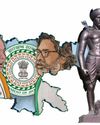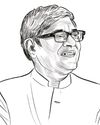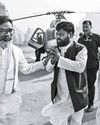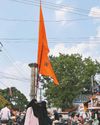In an age of a secular system of mercenary soldiery, Koregaon was an inconclusive clash. Heroism was read into it first by the British, then by Ambedkar.

It was January 18, 1943. Independence was imminent and Pakistan was but a mischievous slogan. Dr. B.R. Ambedkar had been invited to address a gathering assembled at Pune to remember the 101st birthday of the great jurist and nationalist, Mahadev Govind Ranade. The Quit India Movement of August 1942 had just been put down. Ambedkar spoke out his mind. Gandhi and Jinnah had made a mess of Indian politics by resorting to politics based on community identities, he said, much like the bad old days when the Peshwa promoted caste and community, privileged the rich and powerful, while people suffered widespread misgovernance that was made worse by the depredations of roving bands of Pindaris. Ambedkar warned his audience that India needed politics that was based on the interests of the nation and not a narrow, specific community. He reminded the gathering that people had breathed a sigh of relief at the defeat of the Peshwas and their cursed rule. So bad was the rule of the Peshwa, Ambedkar explained, that people were even willing to go with the English.
That last, of course, was both an over-statement as well as an under-statement. It was an over-statement in two ways. One, Indians never fully approved of British rule. Two, once the British settled down to rule they became just as casteist as Indians. So much so that in 1892 they even placed a ban on the Mahars entering the army. A ban that, Ambedkar would plead, needed to be removed to give equal opportunity for all to grow.
هذه القصة مأخوذة من طبعة January 22, 2018 من Outlook.
ابدأ النسخة التجريبية المجانية من Magzter GOLD لمدة 7 أيام للوصول إلى آلاف القصص المتميزة المنسقة وأكثر من 9,000 مجلة وصحيفة.
بالفعل مشترك ? تسجيل الدخول
هذه القصة مأخوذة من طبعة January 22, 2018 من Outlook.
ابدأ النسخة التجريبية المجانية من Magzter GOLD لمدة 7 أيام للوصول إلى آلاف القصص المتميزة المنسقة وأكثر من 9,000 مجلة وصحيفة.
بالفعل مشترك? تسجيل الدخول

Trump's White House 'Waapsi'
Donald Trump's victory in the US presidential election may very well mean an end to democracy in the near future

IMT Ghaziabad hosted its Annual Convocation Ceremony for the Class of 2024
Shri Suresh Narayanan, Chairman Managing Director of Nestlé India Limited, congratulated and motivated graduates at IMT Ghaziabad's Convocation 2024

Identity and 'Infiltrators'
The Jharkhand Assembly election has emerged as a high-stakes political contest, with the battle for power intensifying between key players in the state.

Beyond Deadlines
Bibek Debroy could engage with even those who were not aligned with his politics or economics

Portraying Absence
Exhibits at a group art show in Kolkata examine existence in the absence

Of Rivers, Jungles and Mountains
In Adivasi poetry, everything breathes, everything is alive and nothing is inferior to humans

Hemant Versus Himanta
Himanta Biswa Sarma brings his hate bandwagon to Jharkhand to rattle Hemant Soren’s tribal identity politics

A Smouldering Wasteland
As Jharkhand goes to the polls, people living in and around Jharia coalfield have just one request for the administration—a life free from smoke, fear and danger for their children

Search for a Narrative
By demanding a separate Sarna Code for the tribals, Hemant Soren has offered the larger issue of tribal identity before the voters

The Historic Bonhomie
While the BJP Is trying to invoke the trope of Bangladeshi infiltrators”, the ground reality paints a different picture pertaining to the historical significance of Muslim-Adivasi camaraderie